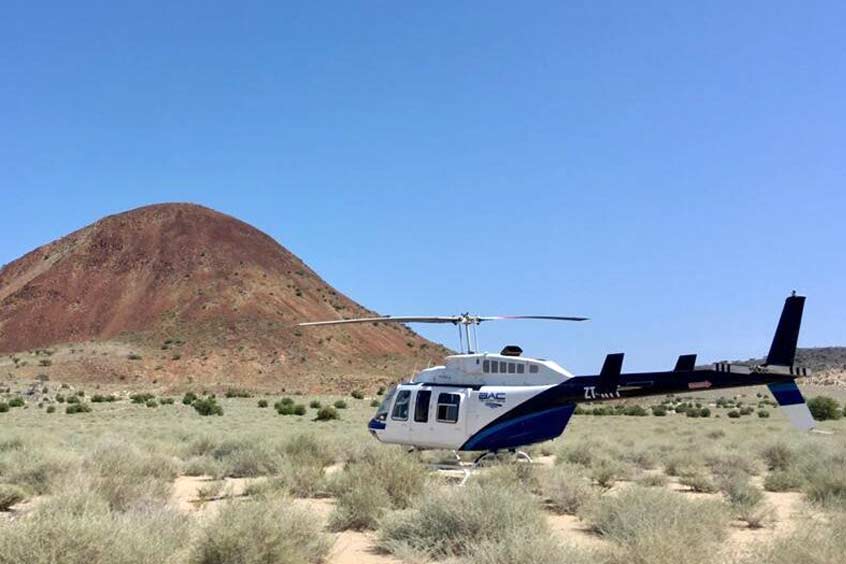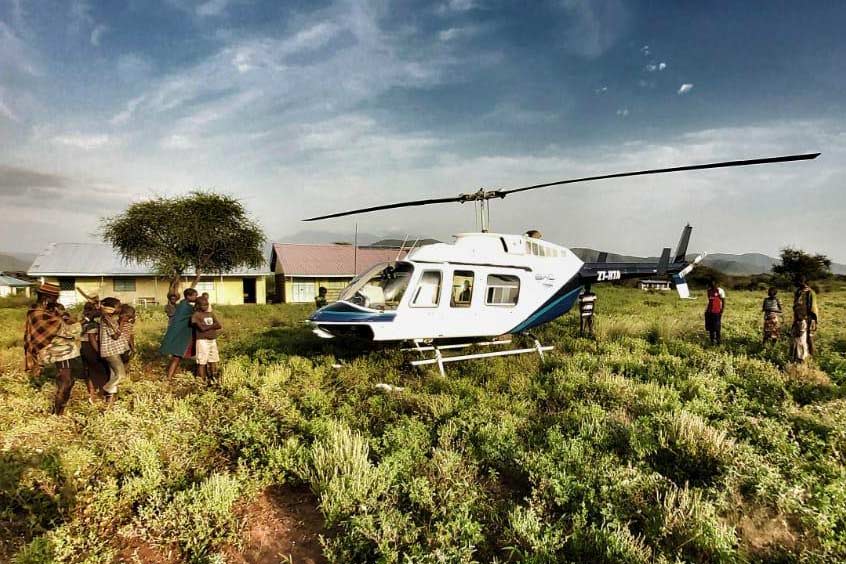Why visit ACE ’24?



In March 2020, as the global COVID-19 pandemic began building momentum and South Africa went into Level 5 lockdown, operator BAC Helicopters was requested by an NGO to send two Bell 206L-4 LongRanger helicopters to Kenya to carry out an emergency desert locust survey. East Africa has recently been plagued by a desert locust invasion, wreaking havoc to food security in the region.
With the uncertainty brought about by the virus, as well as related travel restrictions, particularly cross border travel, planning for the challenging ferry of the two helicopters from South Africa to Kenya began immediately. The routing saw the two helicopters pass through four airspaces before landing in Kenya, which required significant logistical planning. The humanitarian aid nature of the mission helped to motivate the necessity of the trip at a time when most countries where in a state of emergency.
The helicopters eventually departed the BAC base at Ballito in mid-May, having obtained all the necessary permits from the relevant authorities en-route. BAC's crew consisted of one pilot and engineer per helicopter, who were required to serve a mandatory quarantine period upon arrival in Nairobi, before the survey operations could begin.
The survey is being carried out in the northern part of Kenya, around Turkana Lake. BAC's LongRanger helicopters are equipped with specialised survey GPS systems, in order to map the areas where the locust swarms are present. Its pilots hold agricultural ratings and meet the required minimum level of experience in these types of operations, as stipulated by the contracting NGO. The information gathered by its survey helicopters is transferred to chemical spraying aircraft, which target these specific problem areas in an effort to eradicate the locust swarms.
During early July, BAC Helicopters deployed a third helicopter to Kenya in support of the desert locust operations; an Airbus AS350-B2 equipped with a spray kit. This helicopter joined its two LongRangers to enhance the operation by introducing spraying capabilities. Pest control spraying by helicopter has never been carried out in Kenya before, with BAC Helicopters being the first operator to demonstrate this to the Kenya Ministry of Agriculture.
BAC Helicopters is proud to be contributing to this humanitarian aid effort in East Africa; food security is vital to the sustainability and prosperity of the region. Through its professional service delivery, it is confident that it has made a positive impact.
“In assessing our utility operations and potential future contract requirements, we felt the 206L-4 presented the most versatile and cost-effective option in this single engine category,” commented Tremayne Thompson, chief executive officer of BAC Helicopters, when the aircraft arrived late last year. “The proven capability of the 206L-4 operating in diverse applications such as vertical reference, passenger charter, firefighting, aerial spraying and survey allows us flexibility to meet our clients' requirements in terms of performance and reliability.”
“The COVID-19 related travel restrictions throughout Africa proved challenging in every respect when it came to contract planning,” adds Ashley Bell, COO of BAC. “Operating across borders in Africa can be challenging at the best of times when it comes to logistics and crew management, but an unprecedented global lockdown took it to a whole new level. Fortunately, our Bell 206L-4 fleet and specialised operational capabilities ensured we were able to meet the stringent contract requirements.”
The helicopters operated at relatively high payloads and ambient temperatures of close to 40 degrees Celsius, often in very windy conditions. The BAC Helicopters crew and its client in Kenya were extremely impressed by the performance of the Bell 206L-4 helicopters in carrying out this humanitarian aid task under challenging conditions and in such a remote location.
“When we purchased our Bell 206L-4s, our gut feeling was that we were making the right helicopter choice. Now we can confirm with confidence that our intuition was correct,” concludes Thompson.